Abstract
Three reliably measured components of conversation—questioning, providing positive feedback, and proportion of time spent talking—were identified and validated as to their social importance. The social validity of the three conversational behaviors was established with five female university students and five female junior-high students. Each was videotaped in conversations with previously unknown adults. The conversational ability of each girl was evaluated by a group of 13 adult judges who viewed each tape and rated each conversant “poor” to “excellent” on a seven-point rating scale. The average ratings of the girls correlated at r = 0.85 with the specified behavioral measures. These procedures were replicated with additional subjects and judges and yielded a correlation of r = 0.84. The high correlations between ratings and the objective measures suggested that the specified conversational behaviors were socially important aspects of conversational ability. Employing a multiple-baseline design across the behaviors of asking questions and providing positive feedback, an attempt was made to train four girls who used these behaviors minimally to engage in the behaviors in conversations with adults. Adult judges were again employed to rate randomly selected samples of the girls' skills in pre- and posttraining conversations. The average ratings of the girls before training were lower than both the university girls and the junior high-school girls. After training, the girls' conversational abilities were rated substantially higher than those of their junior high-school peers. These rating data validated the benefits of the training and the social importance of the behavioral components of questions and feedback in conversation. The authors suggest that it may be necessary for traditional behavior analysis measurement systems to be supplemented by social-validation procedures in order to establish the relationship between “objectively” measured behaviors and complex classes of behavior of interest to society.
Keywords: social validation procedures, conversational behavior, social interaction behaviors, predelinquents
Full text
PDF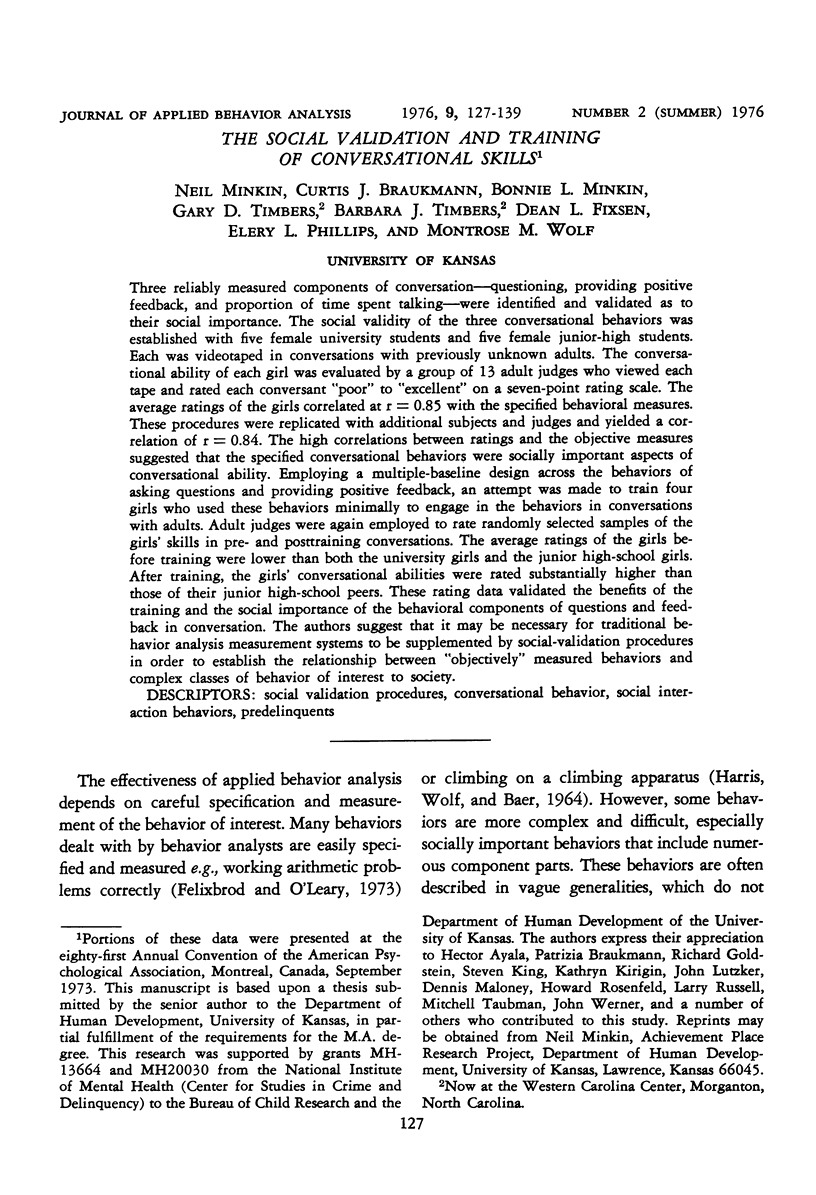
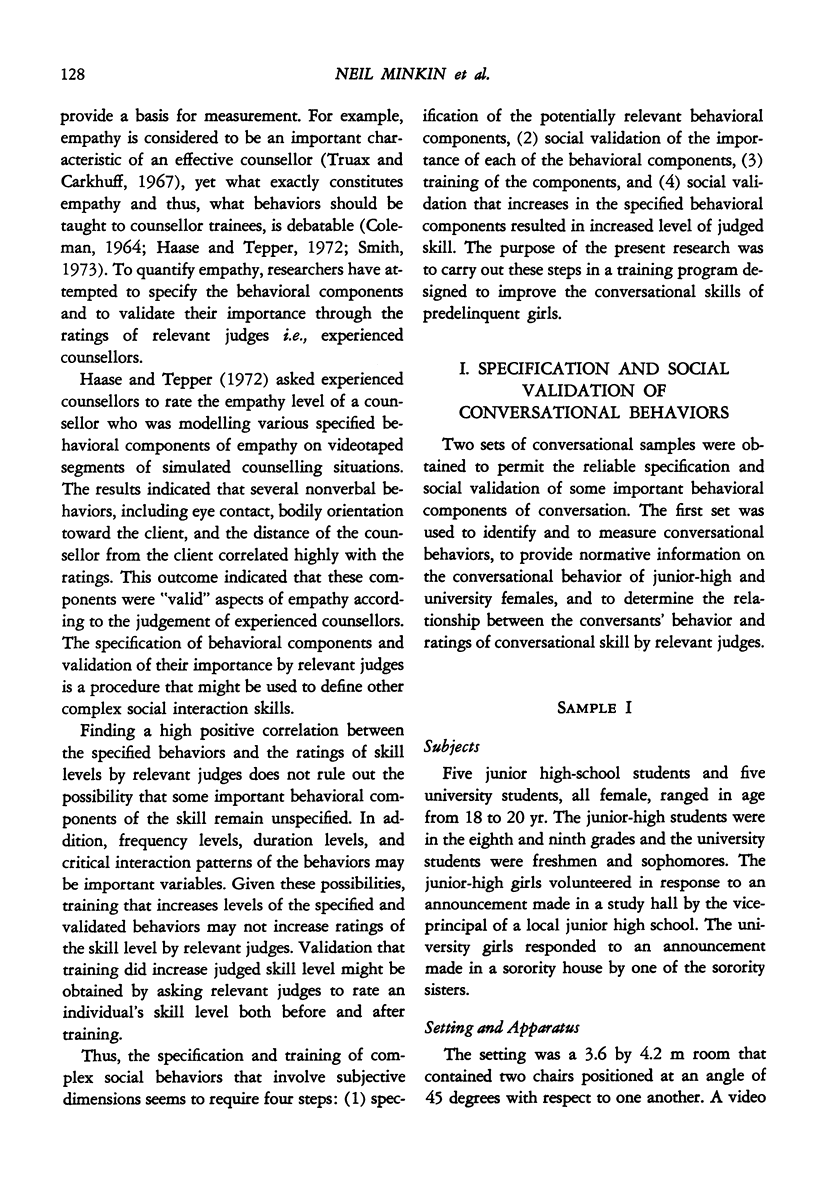
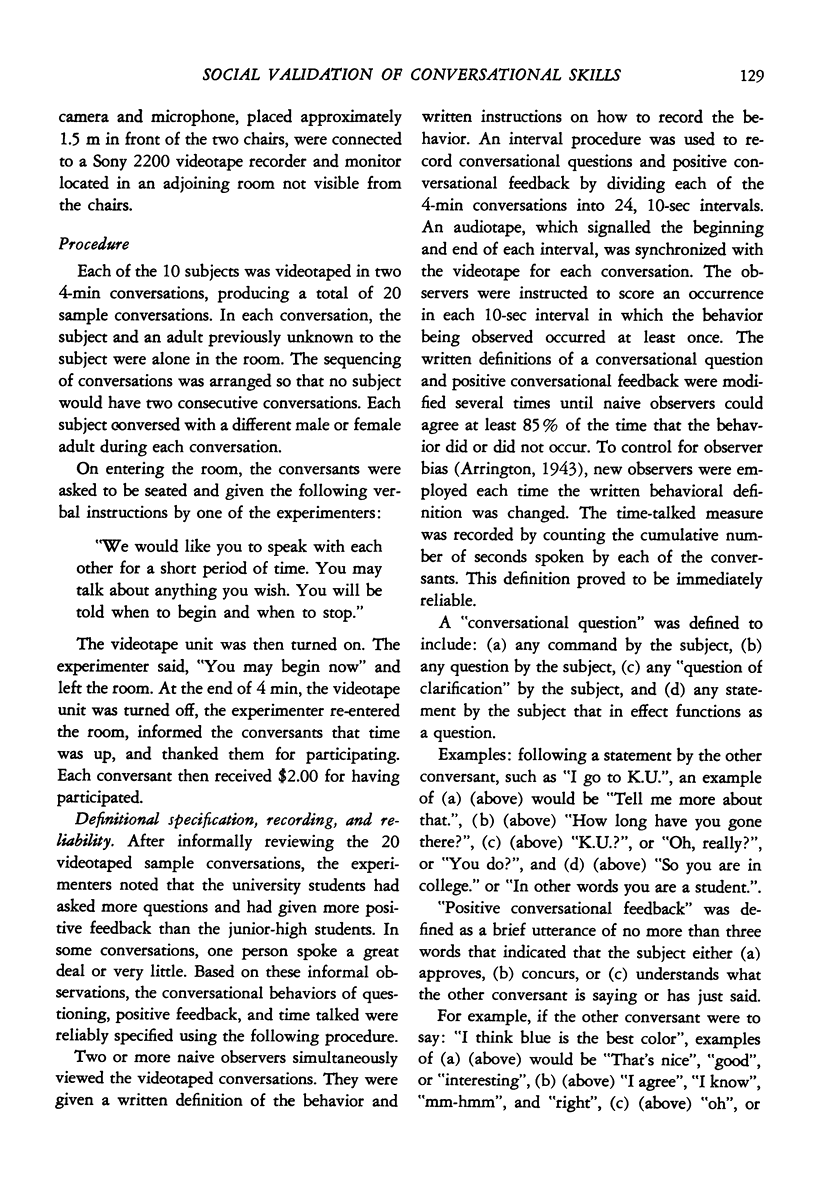
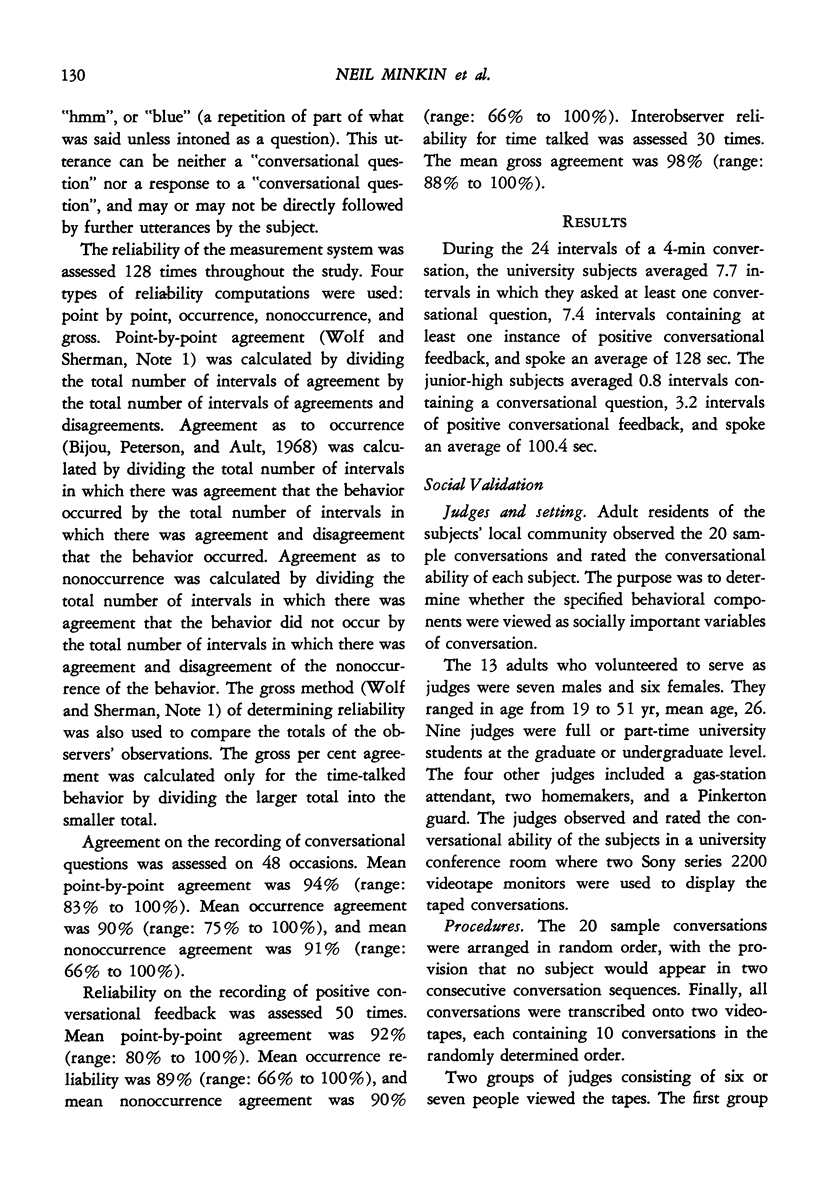
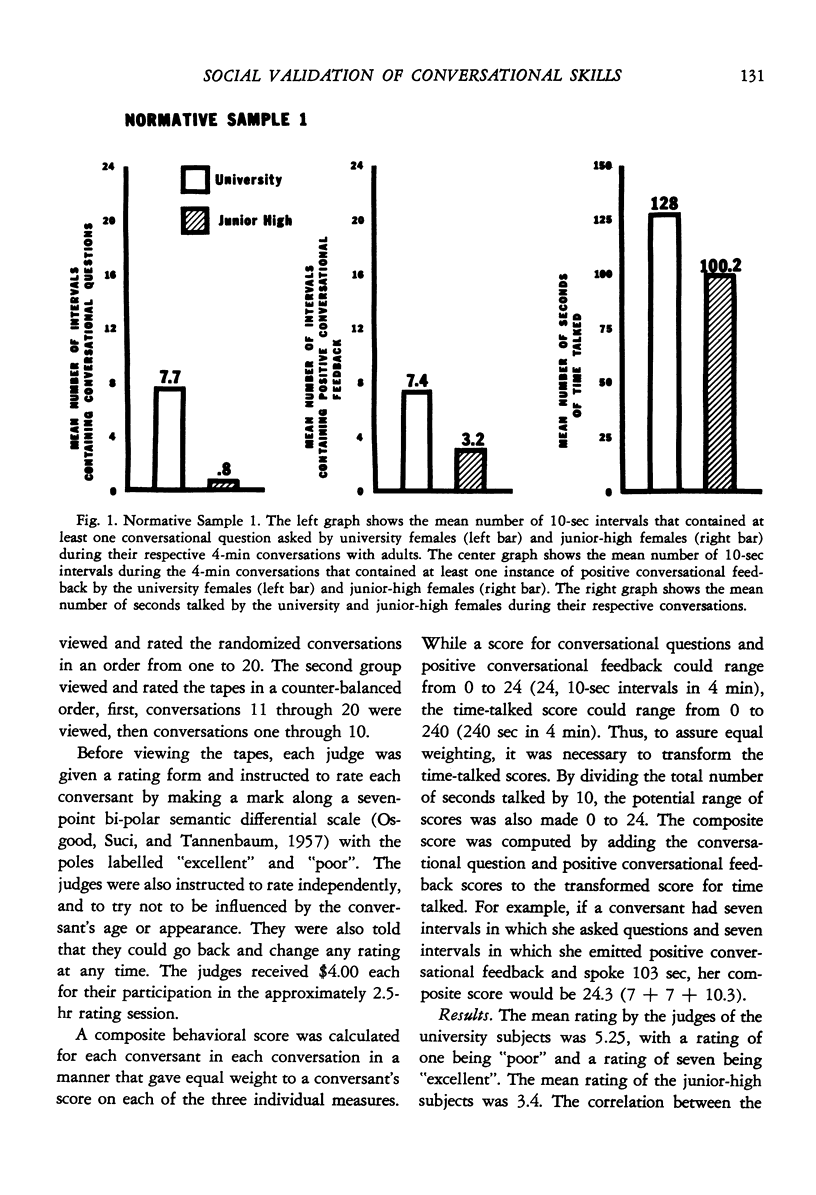
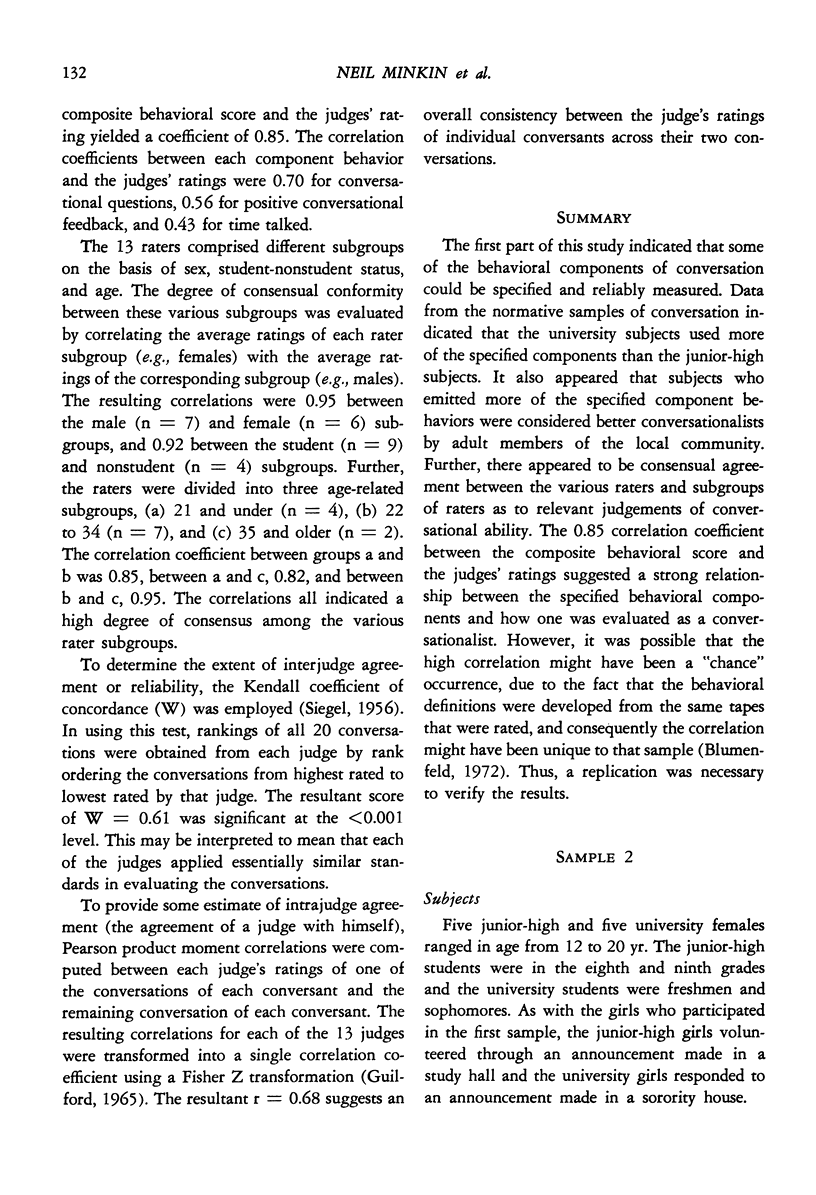
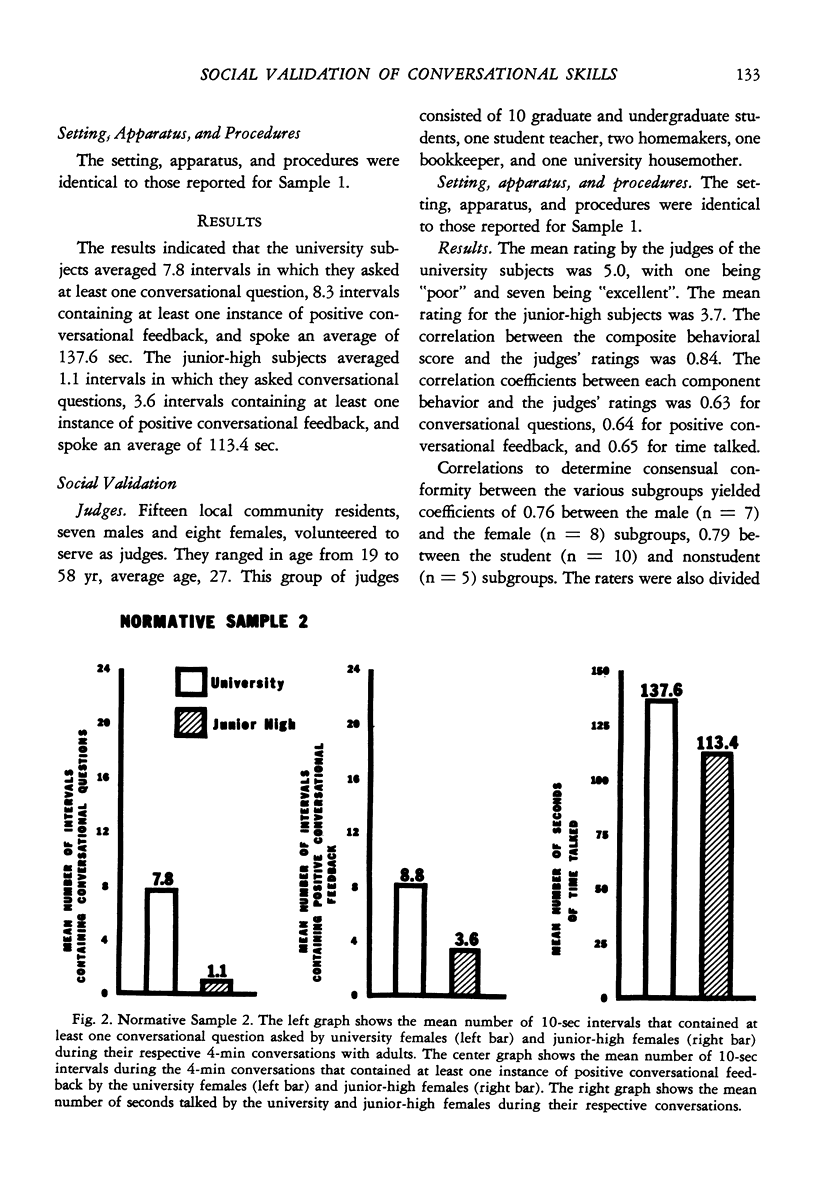
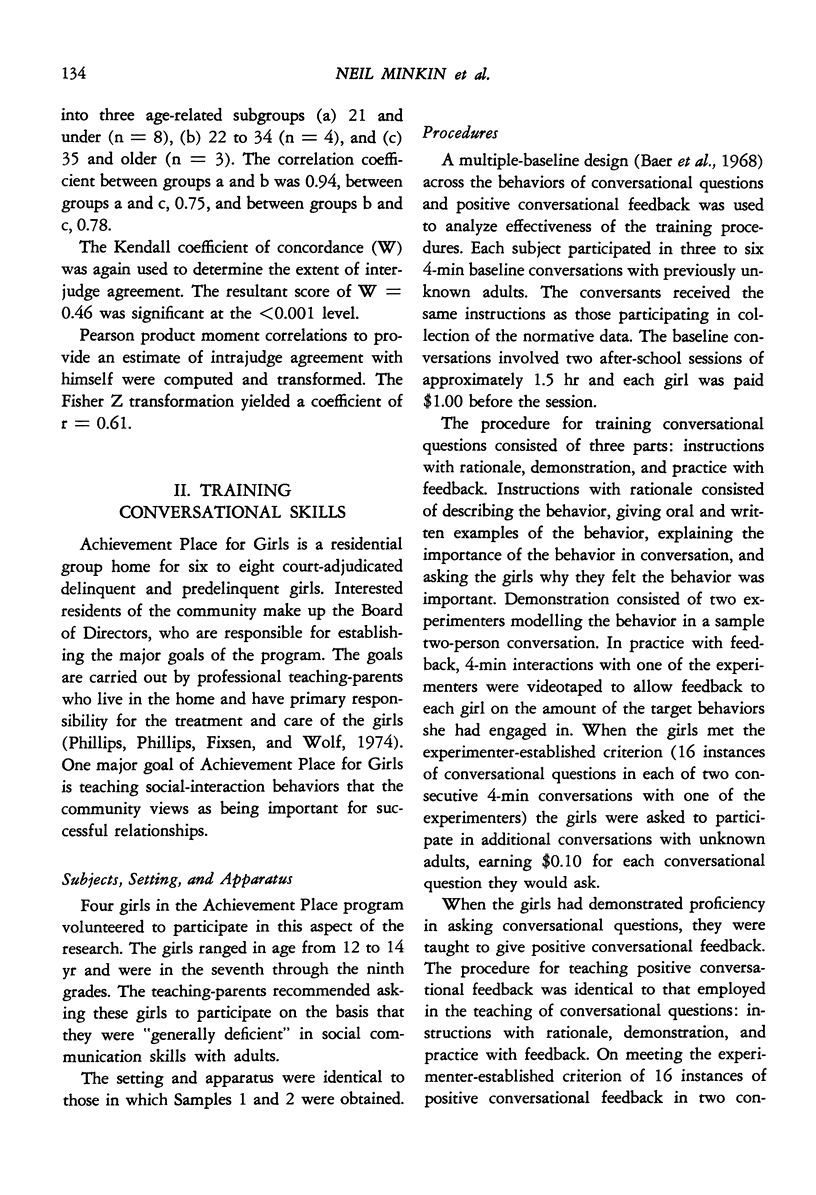
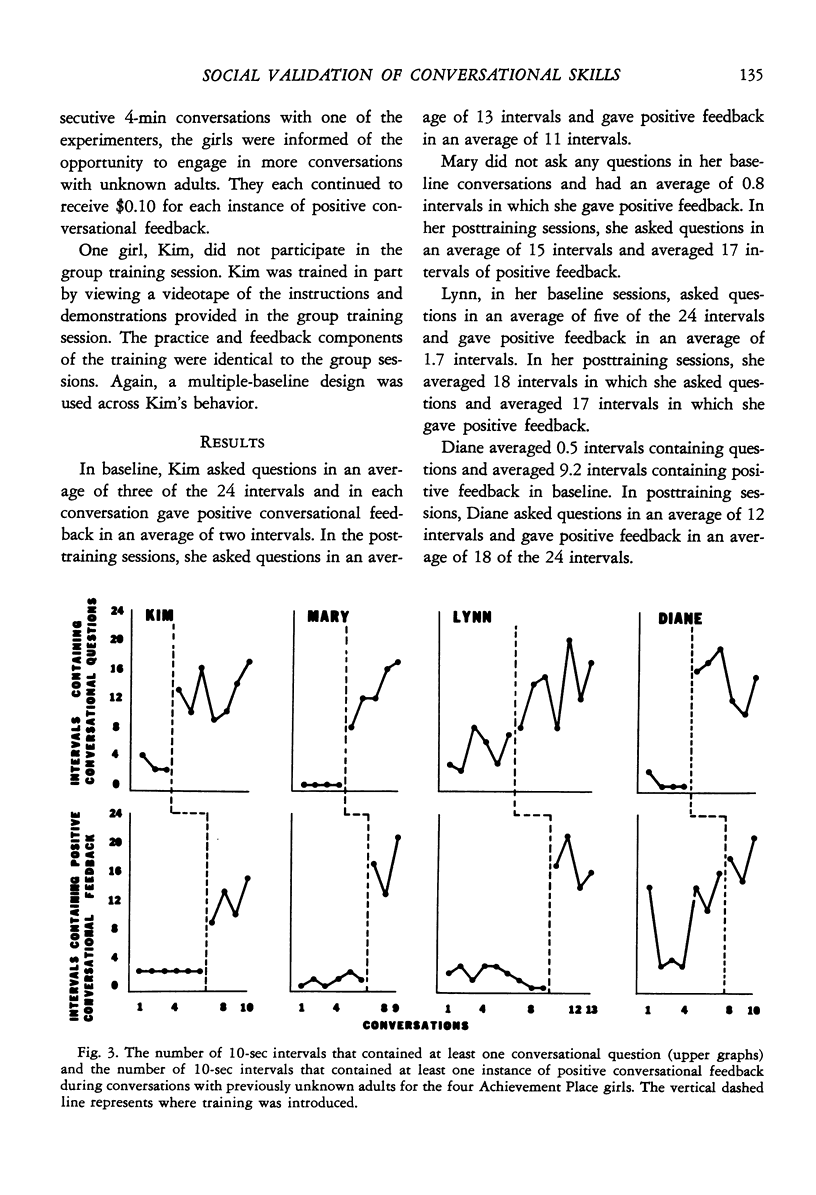
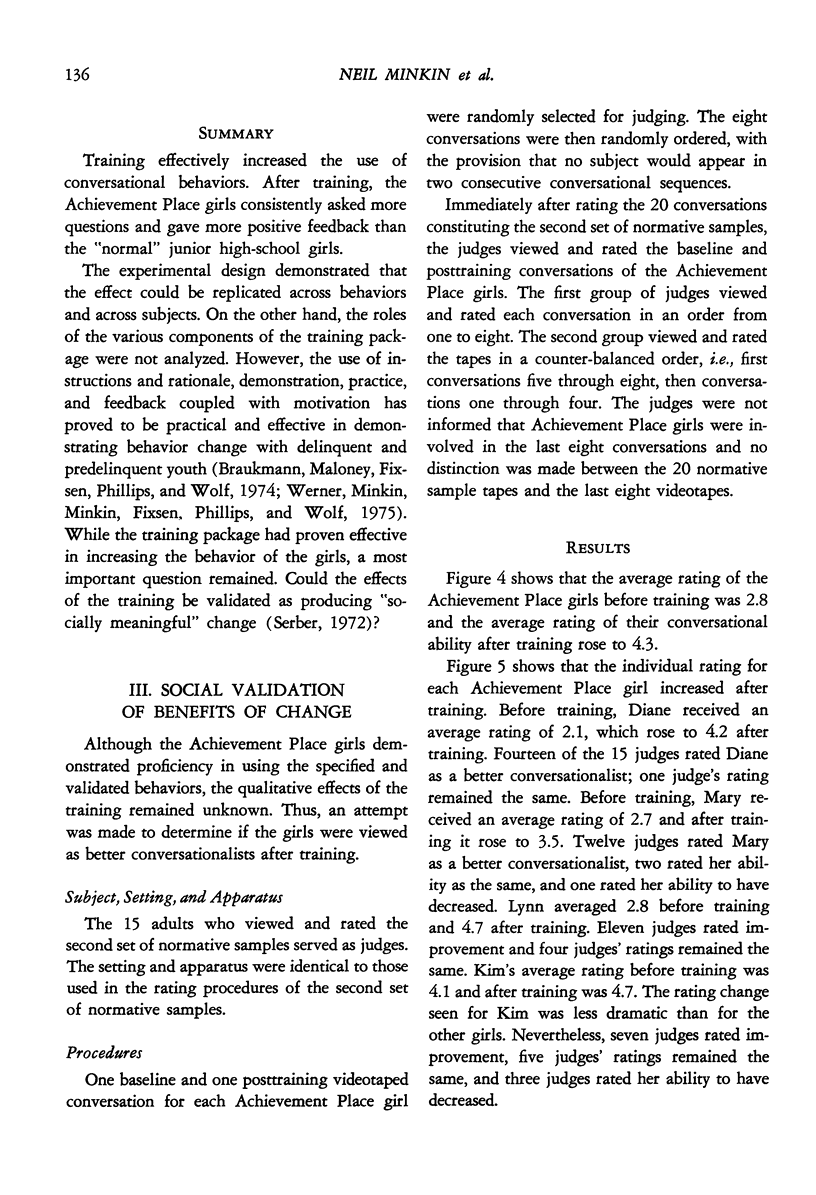
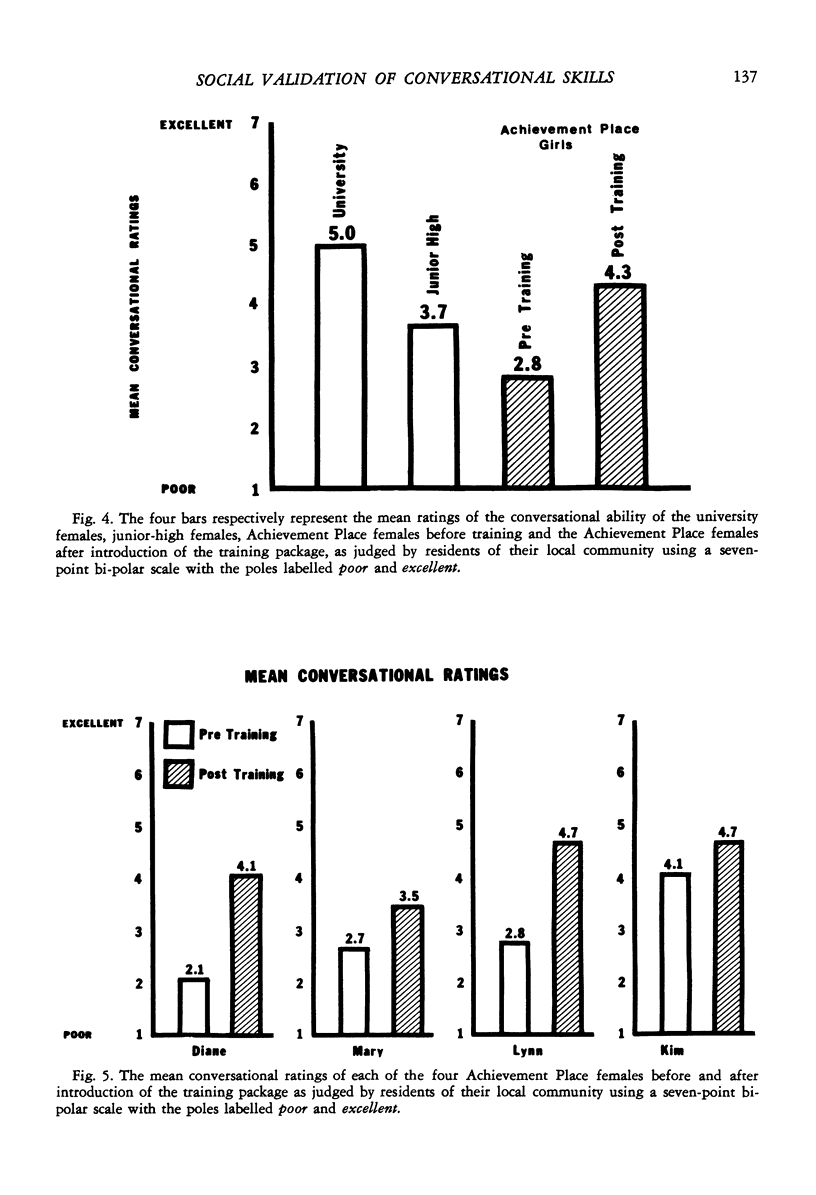
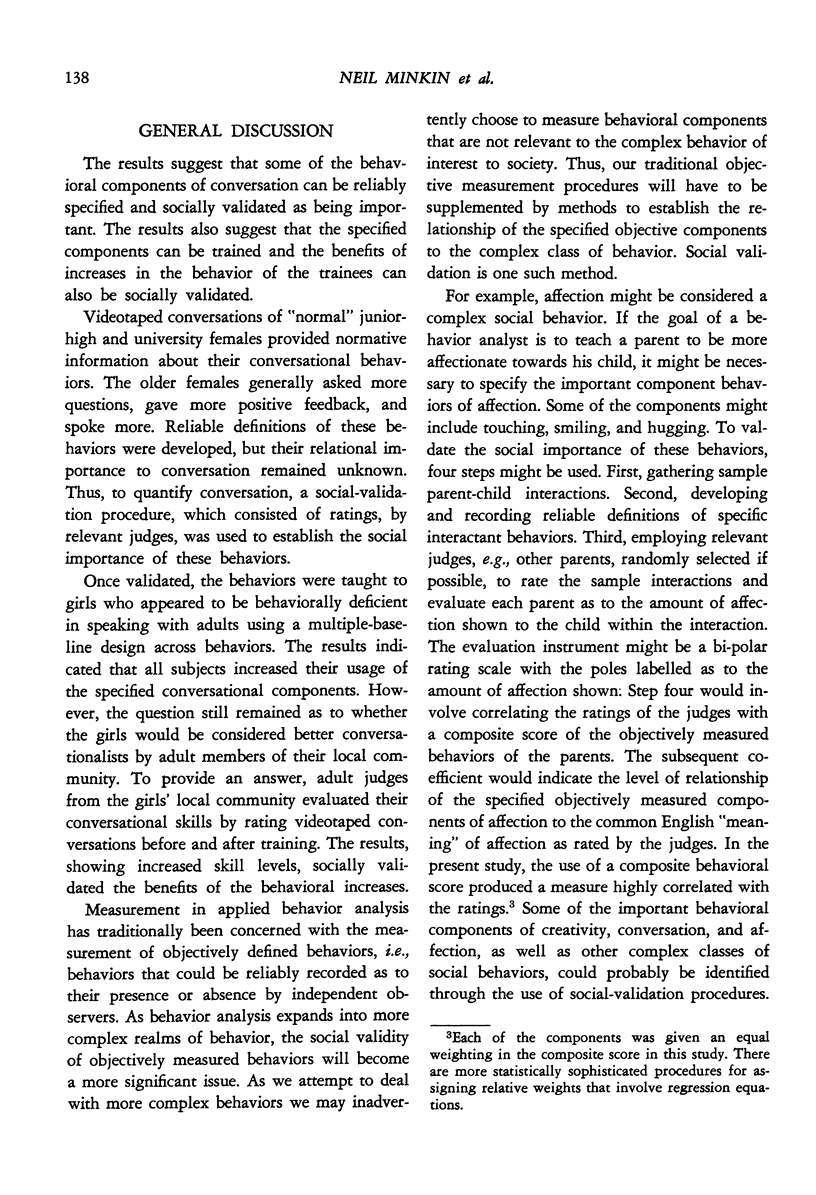
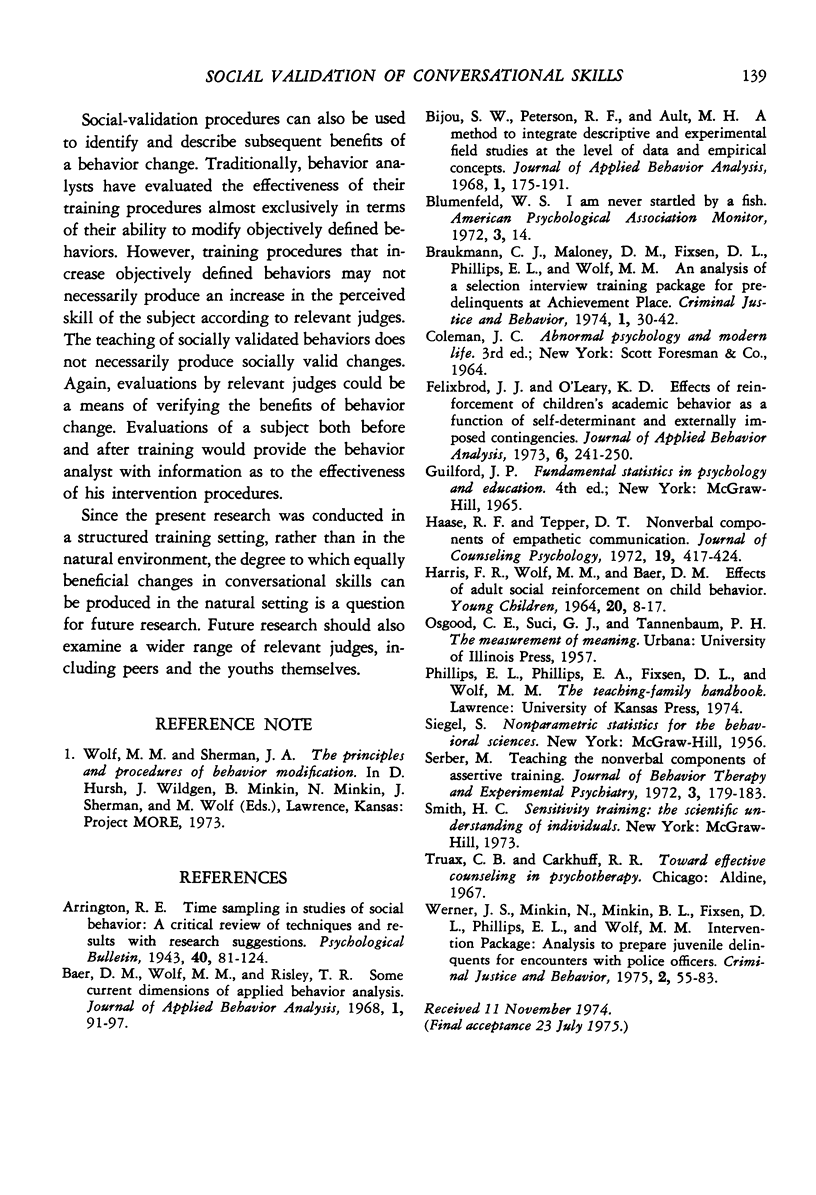
Selected References
These references are in PubMed. This may not be the complete list of references from this article.
- Baer D. M., Wolf M. M., Risley T. R. Some current dimensions of applied behavior analysis. J Appl Behav Anal. 1968 Spring;1(1):91–97. doi: 10.1901/jaba.1968.1-91. [DOI] [PMC free article] [PubMed] [Google Scholar]
- Bijou S. W., Peterson R. F., Ault M. H. A method to integrate descriptive and experimental field studies at the level of data and empirical concepts. J Appl Behav Anal. 1968 Summer;1(2):175–191. doi: 10.1901/jaba.1968.1-175. [DOI] [PMC free article] [PubMed] [Google Scholar]
- Felixbrod J. J., O'leary K. D. Effects of reinforcement on children's academic behavior as a function of self-determined and externally imposed contingencies. J Appl Behav Anal. 1973 Summer;6(2):241–250. doi: 10.1901/jaba.1973.6-241. [DOI] [PMC free article] [PubMed] [Google Scholar]


